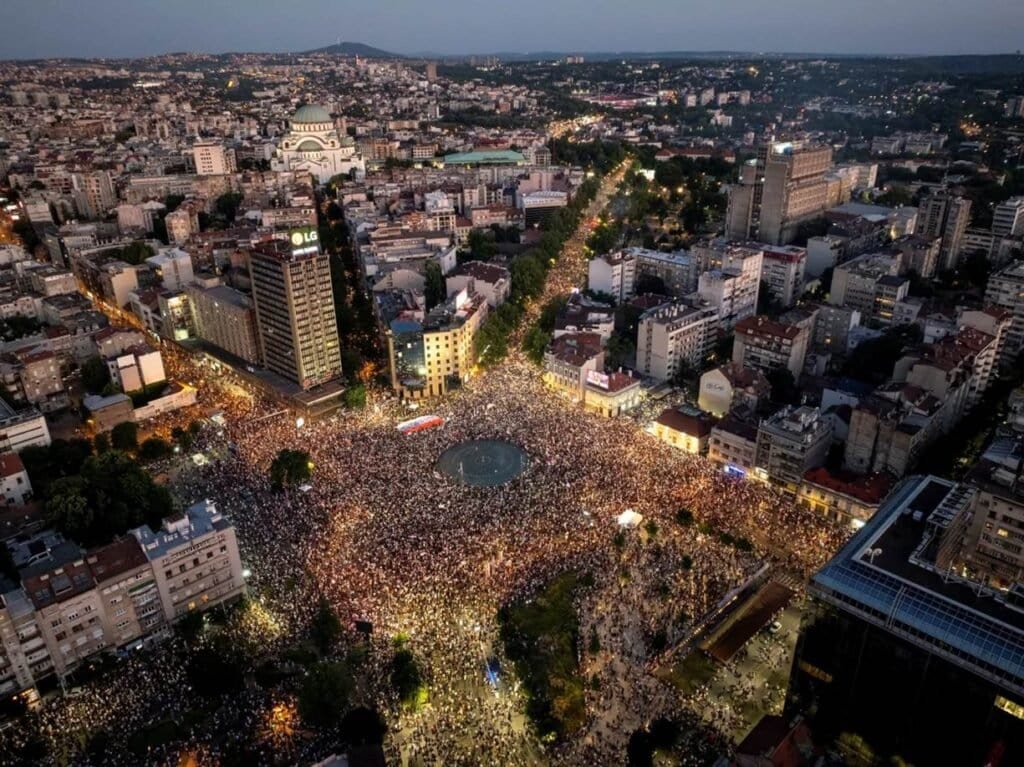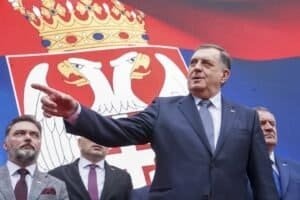On Saturday, June 28, 2025, thousands of protesters gathered in Belgrade, Serbia, demanding early parliamentary elections and the resignation of President Aleksandar Vučić. Clashes erupted between demonstrators and police, who used tear gas to disperse crowds, especially near areas occupied by government supporters.
Drone footage captured university students and other protesters holding up cellphone flashlights during an anti-government rally in Slavija Square, creating powerful imagery that quickly circulated online and in international media.
🎓 A youth-led protest movement fueled by tragedy
The demonstrations are being led by university students, now the driving force behind a civil resistance movement that has been gaining momentum for the past eight months.
The catalyst was a tragic accident on November 1, 2024, when the roof of a train station collapsed, killing 16 people. The disaster was widely attributed to government corruption and negligence, sparking public outrage.
One student at the protest declared:
“Elections are the only solution to this social crisis.
On June 28, we declare the current authorities illegitimate.”
⚠️ Government reaction: crackdown and intimidation
President Vučić has refused all calls for early elections, accusing the protesters of inciting violence with foreign support. Authorities took several measures to limit attendance:
- Border restrictions were imposed on travelers from Croatia and Montenegro
- Several arrests were made
- Train lines were suspended, citing “bomb threats” — a move critics say was designed to suppress participation
Human rights groups have condemned these actions as efforts to intimidate dissent and prevent democratic mobilization.
🕊️ A symbolic protest date: Vidovdan
The protest took place on Vidovdan (St. Vitus Day) — one of the most symbolically charged dates in Serbian history. Often used in the past to mobilize nationalist sentiment, this time the opposition reclaimed the date as a symbol of civic resistance.
Vidovdan commemorates the Battle of Kosovo in 1389, and has been repeatedly invoked in political messaging across Serbian history.
🧭 Political context: Vučić’s rule under increasing pressure
Aleksandar Vučić has served as Serbia’s president for over a decade and faces growing criticism for authoritarianism, suppression of media freedom, and tightening alliances with Russia and China — even while officially pursuing EU integration.
Although the next national elections are scheduled for 2027, public pressure for snap elections is mounting as dissatisfaction spreads.



